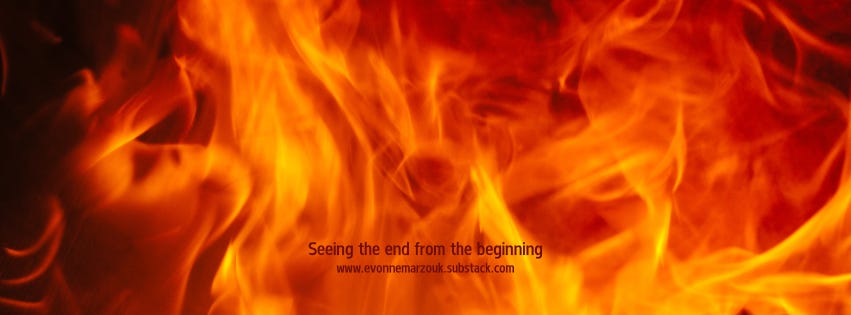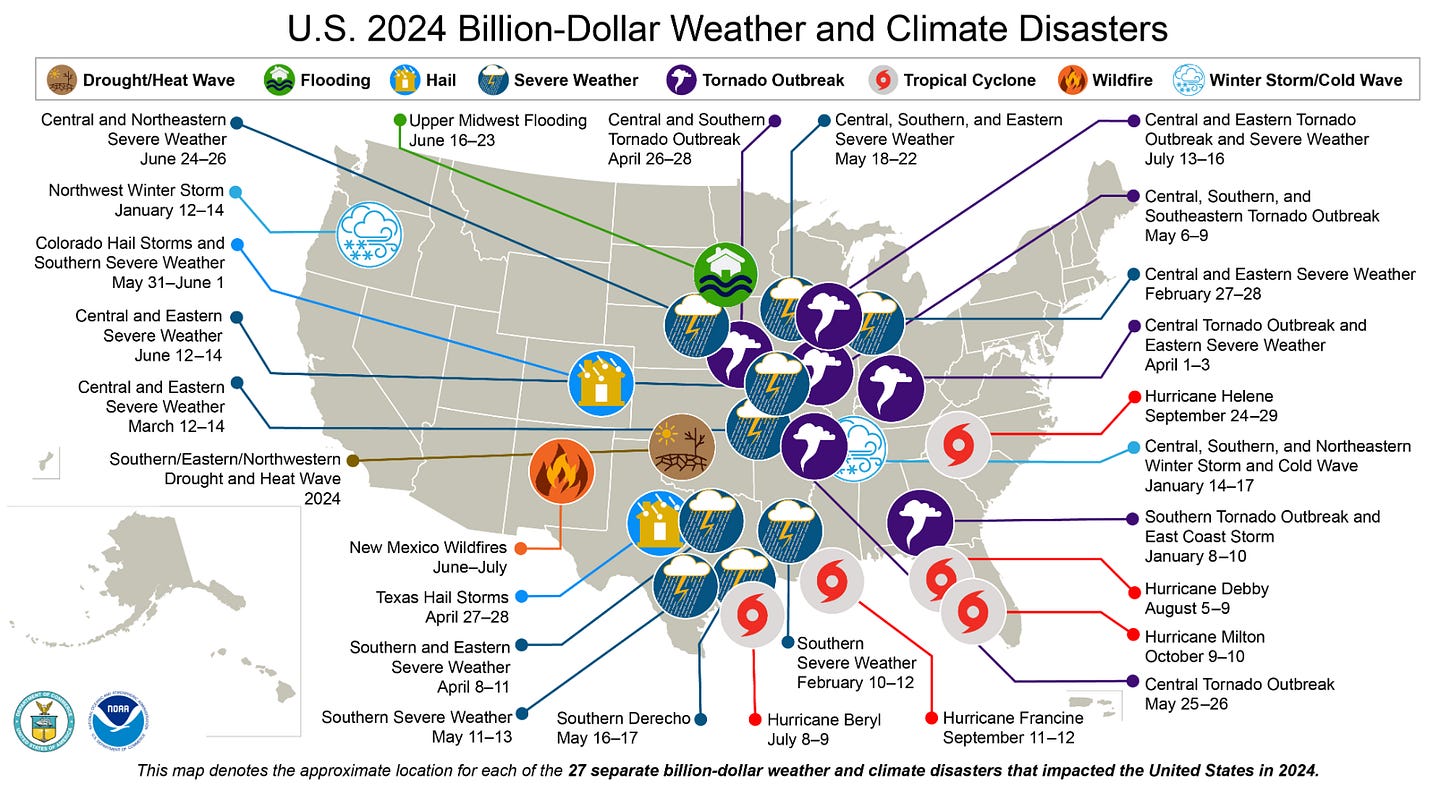Early in my career, I spent a summer interning in the EPA Region 9 office in California. One of my projects had to do with maps that predicted natural disasters that could occur as a result of climate change. I recall asking an older colleague there about certain markers on the map.
“Fires?” I asked. “Why are fires natural disasters caused by climate change?”
Having grown up in the Mid-Atlantic, I didn’t have much relationship to fires. I thought they were caused by people leaving lit cigarettes in the forest, as Smoky the Bear had warned me not to. Or by arson.
My more experienced colleague explained to me about wildfires on the West Coast and how they were expected to increase due to climate change-driven drought and related conditions. I looked at all the little markers where little flames had been predicted as a result of climate change and felt horrified. This is the future we’re creating, I thought.
That was nearly twenty-five years ago.
In the earlier days of climate activism, when even those concerned were just starting to understand the potential effects, it seemed the main barrier was lack of understanding. If the general public could simply understand the risks, we thought, they would insist upon change. Books were written, like An Inconvenient Truth and The End of Nature. There were movies like The Day After Tomorrow.
Later, we made calls to values and commitments. We asked people to think about their own grandchildren. That’s too far in the future, we were told. People are focusing on what’s right in front of them. You have to connect the climate to their immediate concerns.
But none of that was true.
In the United States in 2024, the United States experienced 27 weather and climate disasters, each incurring losses that exceeded $1 billion. That doesn’t even count disasters that fell short of the billion dollar threshold.
Source: https://www.ncei.noaa.gov/news/national-climate-202413
In the center of the country, there were tornadoes and flooding. In New Mexico, there were wildfires. There was a winter storm in the Northwest. There were hailstorms in Texas. In the Southeast, there were five major hurricanes, including, of course, Hurricane Helene, which made landfall as a Category 4 storm in Florida on September 26, and Hurricane Milton just weeks later on October 9. The estimated cost of these two disasters alone is over $100 billion.
According to NOAA, over the last 10 years 190 separate billion-dollar disasters have killed at least 6,300 and cost approximately $1.4 trillion in damage.
In 2024, more than 61,000 wildfires were reported in the United States. The Park Fire, the fourth-largest wildfire in California history, burned nearly 430,000 acres and destroyed over 600 structures. And all these pale in comparison to the scenes from Los Angeles from the last week. A preliminary estimate puts the total damage and economic lost at over $50 billion from these fires alone.
It’s right in front of us, affecting the lives of millions of people, and inexplicably, we are still not seeing it.
In Pirkei Avot, Rabbi Yochanan asks his students who is considered wise. It is Rabbi Shimon who answers, “הָרוֹאֶה אֶת הַנּוֹלָד” - a person who sees the end from the beginning. When I first learned this text, I found it pretty obvious. Isn’t this just what we teach our children, beginning when they are very young? “Think about the consequences of your actions,” we tell them, as we guide them not to run into the street without looking both ways. When we teach them not to hit another child. As we remind them to study, rather than go out, the night before an important test.
And yet, seeing the end from the beginning requires wisdom indeed. Twenty-five years ago, my wise older colleague understood that if we continued on this path of runaway climate change, we would reach a point of uncontrolled storms and wildfires. For decades, prophets of wisdom (including scientists and certain religious leaders and many concerned citizens) have been warning us to see the consequences of our actions, to stop our ways before it is too late. But as prophets have discovered time and again, wisdom is worthless if no one is willing to hear it.
Now the crisis is literally upon us, and instead of facing it, everyone seems to be arguing about whether California managed its water or leaves appropriately, and sending thoughts and prayers instead of the action to change course that is truly necessary to avoid an even worsening future reality.
When they write about this bizarre time, perhaps historians will be able to explain that what was really happening was people’s inability to face the truth even when it stood directly in front of them. How their views were so distorted by fear, shame and greed that they chose to invest their energy and focus literally anywhere else to avoid seeing the obvious end. That they willingly embraced confusion and doubt, what-aboutism and all manner of conspiracy theories, to avoid making the genuine sacrifices needed to change course in time.
Post script:
Reading an earlier draft, my husband suggested I add some actions to this piece. If you don't call them to action, he said, what is it for? But to be honest, I'm all out of actions. Anything I could say has been said hundreds of times before. This is not a call to action. It’s a prophet’s cry of despair.
May we see better days.






It is not inexplicable that we are failing as a society to adequately address climate change, even as we are negatively impacted in the present day. Only a few years ago, in 2021, a survey of Americans (quoted in Time Magazine 7/2/24, https://time.com/6990721/us-politics-polarization-myth/), found that a "solution to Climate Change" was the #3 priority across all segments of the U.S. population. Most people are aware and believe we need a solution. Yet much of our public discourse is guided by mainstream media (and the reverse is not also true, what we believe as a majority is not often reflected back to us). Media giants are intricately enmeshed with the interests of Big Oil and national politics. We are not hearing more about how climate change is causing these events because big money dictates that we not hear more about it. At the same time, as individuals we feel disempowered by the monoliths we must tackle in order to create substantive change in society. We need to EXPAND our ALLIANCES, just as everything we hear in the public discourse seeks to divide us. We are losing the battle against the most wealthy and powerful entities in the world, because we have not yet learned how to unite--and in democratic countries like America--demand what is needed for our country, regardless of who is in office.